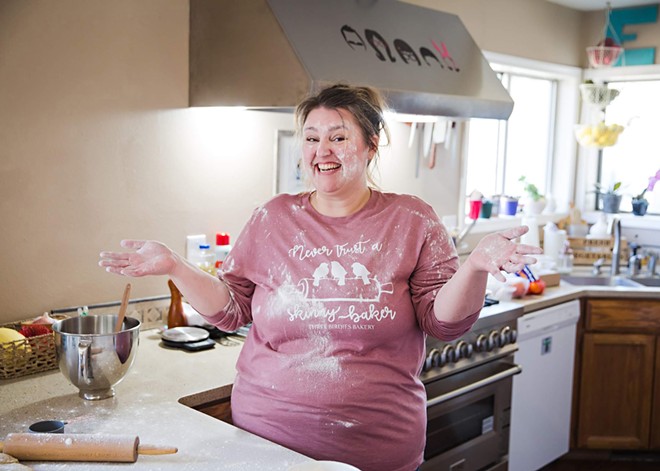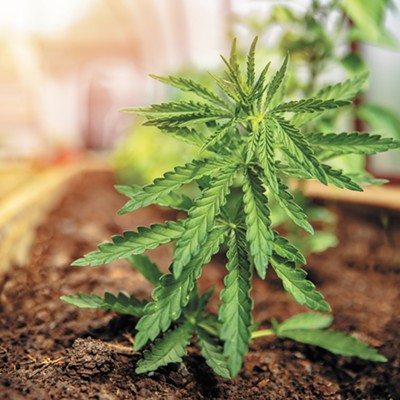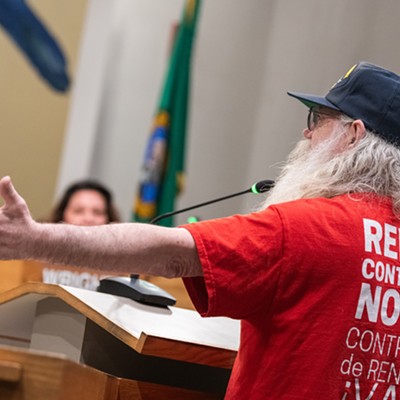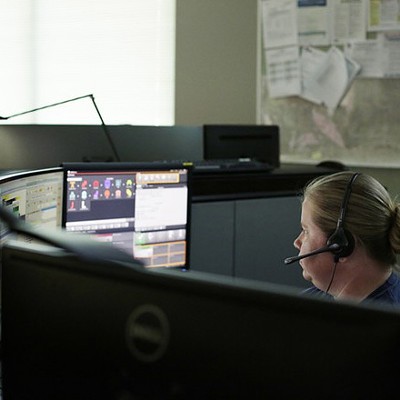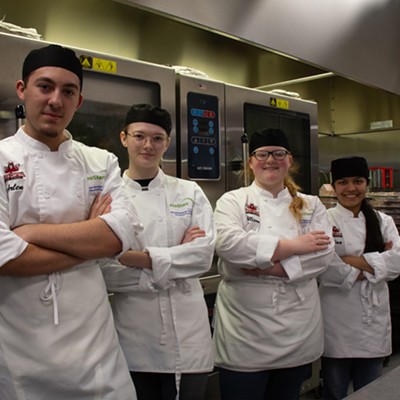Flour, sugar, milk, butter and eggs — the not-so-secret ingredients for almost anything delicious. But they're also the pantry staples that faced some of the steepest price spikes since 2021.
"There's a lot of people that I talk to where it's just like, 'Well, it's just eggs and flour,'" says Jamie Roberts. "[But] it's my livelihood."
Roberts is the owner and baker of Three Birdies Bakery, a custom sugar cookie bakery in Spokane. She started her business out of her home in March 2018 after friends saw her Christmas cookie Facebook posts and asked if they could buy some.
She wasn't sure how big the business would get, so she got a cottage food license that allowed her to keep making and selling cookies from home.
For years, Washington has capped the annual income for cottage food makers at $25,000. But rising food costs are eating into that income and whisking away profits.
In May, Washington legislators passed a new state law increasing the annual income cap for cottage food operations to $35,000 effective July 23. It also requires that the cap be reevaluated and adjusted for inflation based on the federal Bureau of Labor Statistics' consumer price index every four years. Additionally, cottage food makers will be able to keep their license for two years, instead of reapplying every year.
State Rep. Carolyn Eslick, R-Sultan, who sponsored the bill, says she's been working for three years to improve conditions for emerging food business owners in order to create a better incubation period for growing businesses. She says many states don't put any income cap on cottage food operations.
"Give the entrepreneur their due knowledge of what they're doing and their capacity," she says. "When they outgrow their kitchen, then they go to a commercial kitchen."
Eslick and other legislators initially proposed increasing the cap to $50,000. Though the bill passed unanimously in the House, it got some pushback in the Senate. A main concern was food safety.
A cottage food license allows a residential home to produce foods that are "not potentially hazardous" like baked goods, candies and jams. It requires an inspection from a Washington State Department of Agriculture food safety officer, plus a separate area for retail food preparation, away from personal cooking, kids and pets.
The paperwork and prep is daunting, Roberts the home baker says, but worth it.
"If I'm buying food from somebody that I'm gonna put into my body or my kid's body, I want that regulated," she says.
An income cap is an additional way to control the amount of food being made in someone's home, says state Sen. Kevin Van De Wege, D-Lake Sutherland, the only senator to vote against the bill. He thinks a cap is more a cost effective food safety protection than paying for more frequent health inspections.
He also wants to keep the cap low in order to limit any unfair advantage a home baker would have over a traditional business owner who has employees and rent to pay.
Van De Wege uses wedding cakes as an example. Tiered and decadent, they can be lucrative, if you're good at it. A talented baker making cakes at home could earn a lot of money pretty quickly, unfairly competing with a commercial baker who has a lot more bills to pay.
"I think the intent is that somebody does it as a hobby, or somebody that's home with their kids [is] able to make some money," he says, but not replace larger businesses.
Negotiators could only raise the cap to $35,000 but made sure to include the permit extension and regular review for inflation.
"Ten grand is a lot of money," says Roberts. "However, when everything else is a lot of money, it's like, 'Well, that doesn't really make a difference.'"
Regardless of the income cap, Roberts was already planning to move into a wholesale license, which would allow her to sell to coffee shops and grocery stores, plus ship out of state to nearby customers in Idaho. If the cap had been increased to $50,000, she says she may have kept a cottage license for a year or two longer, but ultimately she was always aiming toward a bigger business.
"I mean, everybody needs to make money," she says. ♦

